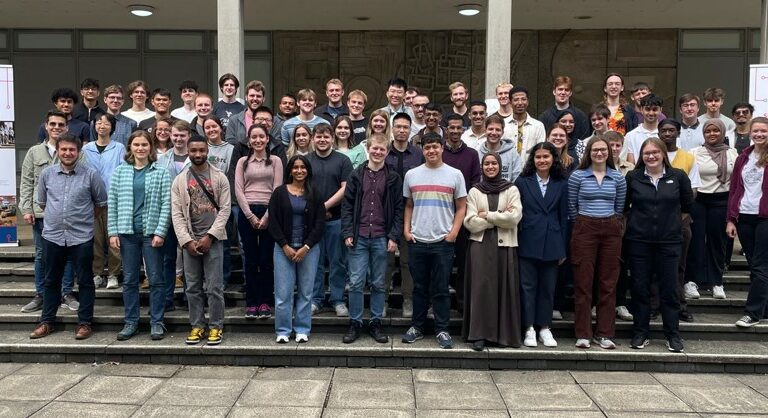By Stew Edmondson, CEO, UKESF
It’s been almost a year since the Government launched their National Semiconductor Strategy and we have gladly welcomed the step change in activity and interest around Electronics and semiconductors. However, the skills challenge remains the same:
The only way for UK semiconductor industry to sustainably grow and thrive in the long term is to increase the number of students studying electronics at degree level.
The semiconductor industry is forecast to be worth $1T globally, but has for a long time largely been unknown to many outside of the profession. It is crucial for advances in healthcare, security, AI, green energy, communication, and many other sectors on which we rely. At the UKESF, it is our mission to ensure that more school children, their parents and their teachers are aware of Electronics, have the opportunity to learn about it in an engaging way.
To achieve this, we are working tirelessly to advocate for skills on behalf of the Electronics industry. We want to ensure that policymakers and other key stakeholders recognise the importance of semiconductors, both for today, and for the future.
We were pleased to have been invited to contribute to the POSTnote, Supply of Semiconductor Chips, by Debbie Woods and Devyani Gajjar. The document has been produced by Parliament, for Parliament, to provide a reliable and impartial overview of the industry. Our contribution has highlighted that:
- 80% of UK companies involved with chip design have unfilled vacancies
- Shortages in students studying relevant degrees, such as Electrical Engineering could hamper UK skills for chip design innovations
- The skills shortage can be addressed by raising awareness of the industry, increasing the number of people studying relevant degrees, and reducing immigration barriers for skilled STEM workers.
The Semiconductor Strategy set out the UK’s plan to “secure areas of world-leading strength in the semiconductor technologies of the future by focusing on our strengths in R&D, design and IP, and compound semiconductors”. Through initiatives like this POSTnote, we can raise awareness of the challenges we face with policymakers so that we can move forward with an aligned, coherent strategy that not only ensures have a good pipeline of Electronics engineers entering industry, but that they have the right skills for the industry to thrive.
Read the POSTnote in full here, and visit our Skills Advocacy page for more information about the work we’re doing.



